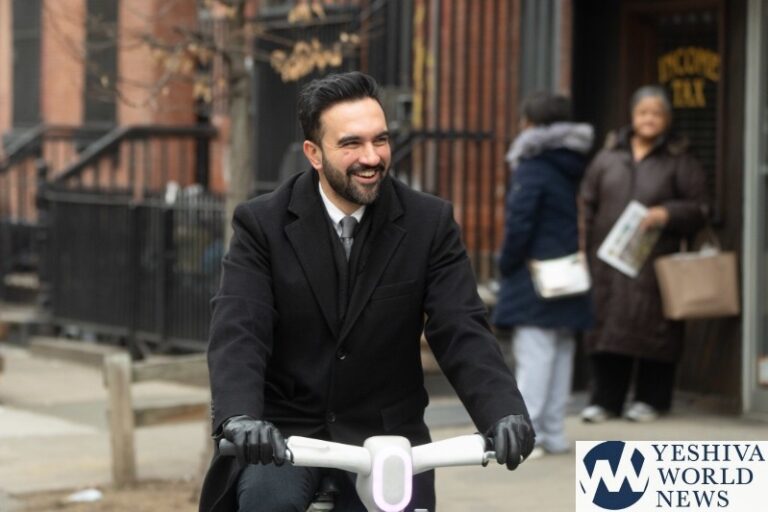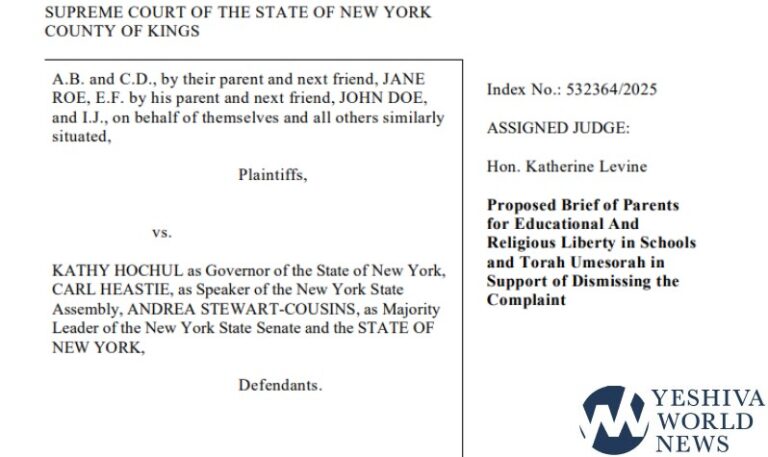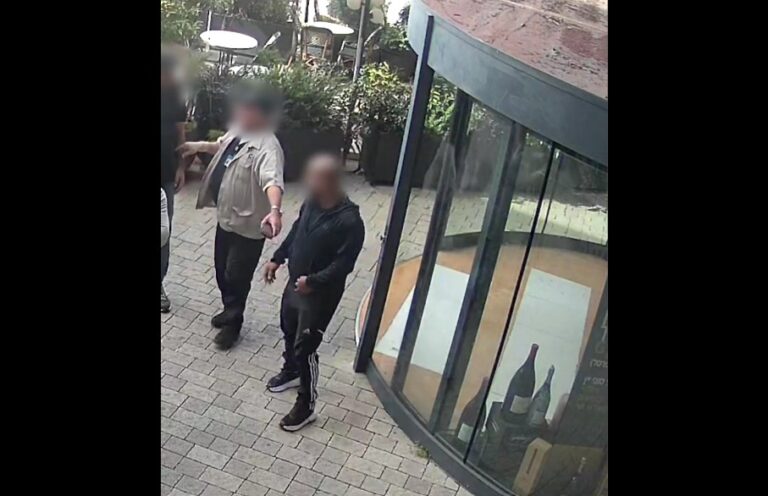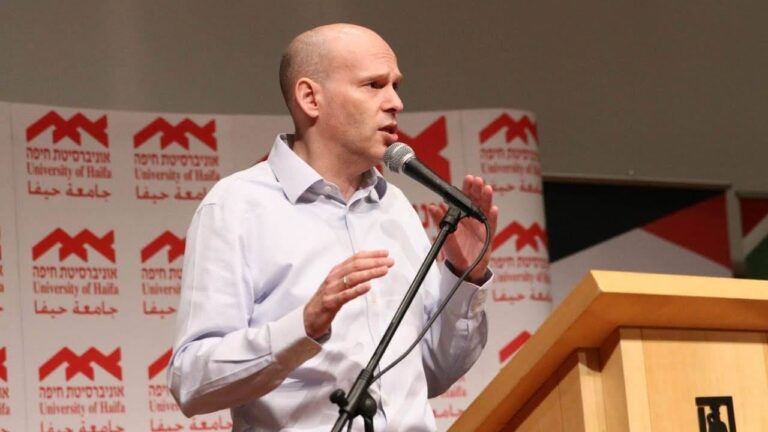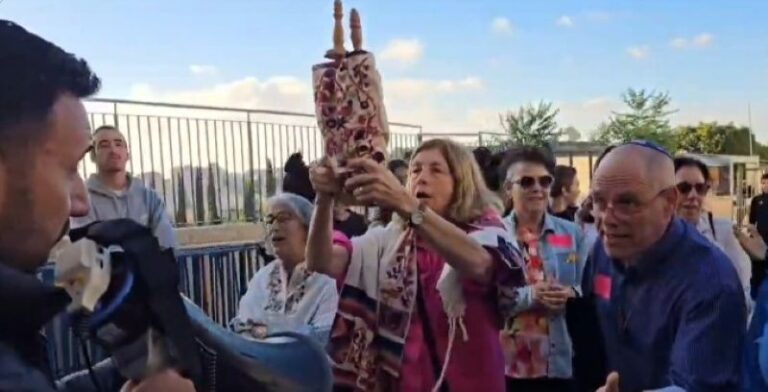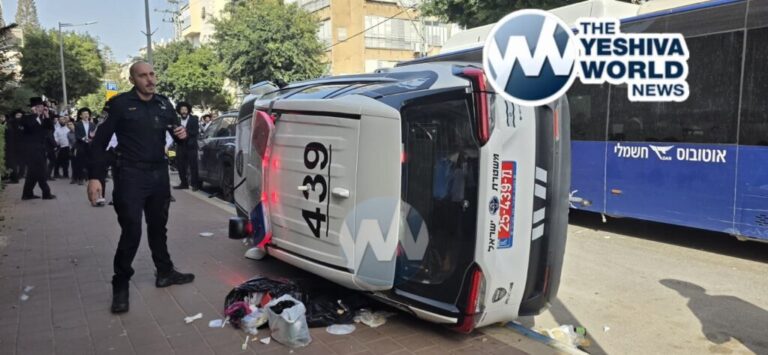 By Rabbi Yair Hoffman for the Five Towns Jewish Times
By Rabbi Yair Hoffman for the Five Towns Jewish Times
Bar Mitzvahs are exciting. And everyone is so proud of the Bar Mitzvah boy, or rather, young man.
“He davened maariv so beautifully on his ‘bo bayom.’ Now let’s hear him make Kiddush for the Shabbos Seudah..”
“What’s that? He can’t?”
“Really? Did you just say that he can only make Kiddush on Shabbos day, but not Shabbos night?”
Yes, that’s correct.
THREE CATEGORIES
There are three categories of Jews in Jewish law. There are minors, there are adults, and there is a third category which we will term, “The barely bar-Mitzvahed.” These three categories, believe it or not, have different halachic statuses.
The “barely bar-Mitzvahed” is a child who has reached the age of Bar Mitzvah but has not yet demonstrated clear signs of physical maturity.
NOT SO WELL KNOWN
Interestingly enough, the halachos of the barely bar-Mitzvahed are not so well known. The reason that they are not so well known is because they are generally not taught in school or at home. Perhaps this is because the exact parameters of physical maturity are a topic that people are not so comfortable discussing. As a consequence, knowledge of the Halacha of the barely bar-Mitzvahed has suffered. This is unfortunate because many people inadvertently violate Halacha as a result.
How is the halacha of the barely Bar Mitzvahed any different from, say, an adult?
The Talmud (Niddah 46a) cites Rava as saying that there is a Chazakah – a legal assumption that we make about a thirteen year old child – that in all probability, he has reached physical maturity. This Chazakah is known as Chazakah d’Rava. However, we only rely upon it in regard to Rabbinic obligations – not biblical ones. For Biblical ones we need proof of physical maturity.
Thus, our above example: A Barely bar-Mitzvahed may recite Kiddush for his mother or sisters on Shabbos morning. He should not do so on Friday night. On Friday night, the obligation to recite the Kiddush is biblical. The words, “Zachor es Yom HaShabbos lekadsho” teach us this according to the Biur Halacha (Orech Chaim 271). On Shabbos morning the obligation is Rabbinic. The Mishna Brurah (on SA OC 271:2) rules that while a Barely bar-Mitzvahed should not be Motzi others for Friday night Kiddush, he may do so for Shabbos morning Kiddush because it is Derabanan.
YOM TOV KIDDUSH AND HAVDALLAH
What about Yom Tov Kiddush at night? Since some Poskim rule that this too is Biblical in origin it is perhaps best to be stringent. Certainly, the Yom Tov daytime Kiddush is only Rabbinic and that would be permitted according to all authorities.
How about Havdalah? Here we have a distinction. If the person hearing his Havdallah has not prayed the evening service and did not include the prayer of Atta Chonantanu in his Shmoneh Esreh then he should not hear it from the Barely bar-Mitzvahed. If the person hearing havdallah did recite a form of Havdallah previously, the Havdallah ceremony is only a Rabbinic obligation and the Barely bar-Mitzvahed may recite it. Women, who generally do not daven Maariv, should therefore recite the formula “HaMavdil Bein Kodesh L’chol” before hearing Havdallah from a Barely bar-Mitzvahed.
DAVENING AND LEINING
And what about leading the Davening and Leining? Leining is permitted. Leading the Maariv is also permitted. Shacharis, Mussaf, and Mincha are problematic, however. He may be exempting others in Tefillah, a Biblical commandment according to the Rambam. According to the Ramban it may be biblical as well since he is of the opinion that prayer is biblically mandated when it is an Ais Tzarah, a time of difficulty. Modern Poskim have stated that our times qualify for the Ramban’s definition as well.
HATARAS NEDARIM
For Hataras Nedarim on Erev Rosh haShana, a Barely bar-Mitzvahed should not be one of the three members of the Beis Din. This is the ruling of Rabbi Akiva Eiger in his responsa (Volume I #73). In this author’s opinion, this is one of the most common violations of Barely bar-Mitzvahed Halacha.
ROSH HASHANA
On Rosh HaShana itself, a Barely bar-Mitzvahed should not blow shofar for others in order for them to fulfill their Mitzvah. If they have already heard the first 30 blasts which are biblical and he is merely fulfilling the one hundred blast quota it would be permitted. The Mateh Efraim 589:7 rules that a Barely bar-Mitzvahed should not even blow Shofar for others on the second day of Rosh HaShana. Presumably, the reason is that we treat the second day of Rosh haShanas as stringently as we do the first day.
SUKKOS
Before Sukkos a person should not purchase his Lulav and Esrog from a Barely bar-Mitzvahed out of concern that the sale of a child may only be effective by Rabbinic law. [This can be easily understood from the fact that in secular law, property cannot be bought and sold by a minor]. The Ksav Sofer (OC 128) rules that we should be stringent regarding this matter. As far as putting up the Schach on a Sukkah, although a child should ideally not do so, a Barely bar-Mitzvahed can according to the Pri Magadim (Siman 14).
A married man whose wife has not yet fulfilled the Mitzvah of Lulav and Esrog (and plans to do so with her husband’s set) should not lend his Lulav and Esrog to a Barely bar-Mitzvahed in Shul on the first day of Yom Tov. This is out of concern that, while he is legally capable of accepting the gift, he may not be able to give it back. Rather, he should tell the Barely bar-Mitzvahed to come to his home that afternoon.
MEGILLAH READING
Shockingly, it could be that we should not be relying upon the barely bar-Mitzvahed for the reading of the Megillah either. Why is this so? Rav Yoseph Chaim Sonnenfeld (Responsa Toras Chaim #53) is of the opinion that since Megillah takes the place of Hallel, it is considered to be Biblical on account of a Kal VaChomer! The Turei Even and the Netziv are of the same opinion in terms of treating the obligation to read the Megillah as a biblical obligation.
PESACH
On Pesach, if a Barely bar-Mitzvahed did the search for Chometz it is completely acceptable. Why? Because we recite the formula of Bittul in any case, making the Bedikah a Rabbinic obligation (MB 432:8). It follows from this that if the Bittul is not going to be recited for some reason, the Barely bar-Mitzvahed should not be the one doing the search for Chometz.
He should not bake the Matzos Mitzvah used on the Seder Night, according to the Biur Halacha (460:1).
He may draw the water and measure the flour, however, according to the Misgeres HaShulchan on the Kitzur SHulchan Aruch (OC 110:15). It is unclear whether a Barely bar-Mitzvahed can fulfill his Mitzvah of eating Matzoh on Pesach with Matzoh that he himself baked.
IMMERSING DISHES
What about Tevilas Keilim, immersing our vessels into a Mikvah before we use them to eat? The Pri Magadim (OC 451) rules that regarding glass vessels and other vessels whose obligation of immersion are only Rabbinic we may rely on The barely bar-Mitzvahed to immerse. Therefore, one may not rely upon a Barely bar-Mitzvahed to immerse metal vessels other than ones made of aluminum.
For all of these halachos should the barely bar-Mitzvahed be Motzi others who are barely bar-Mitzvahed? The answer is clearly not. There is a chance that the other Barely bar-Mitzvahed is actually an adult while the person making the Bracha may not be. Therefore, a Barely bar-Mitzvahed should not even fulfill the Mitzvah for other barely bar-Mitzvahed.
WHEN DOES IT END?
When does the status of Barely bar-Mitzvahood end? Is there an age where we can automatically assume, even without evidence, that the young man has passed into full-fledged adulthood? The Mogen Avrohom (beginning of OC 39) writes that when the young man has reached eighteen years of age we can assume that he has reached full-fledged adulthood. Rabbi Akiva Eiger (Responsa OC #7), however, raises the question as to what the Mogen Avrohom’s source for this is, as does the Eliyahu Rabbah. The Hagaos Chsam Sofer posits that an error has crept into the text of the Mogen Avrohom and suggests that the Mogen Avrohom really meant to write that it ends at the age of twenty.
DO NOT INSULT HIM
It is important to keep in mind that pointing out to a Barely bar-Mitzvahed that he is, in fact, a Barely bar-Mitzvahed may be insulting to him and could possibly hurt his feelings. This could be a negation of the Torah Mitzvah of “VeAhavta L’Rayacha Kamocha,” Heaven forbid. Upon further reflection, this could possibly be why, in fact, knowledge of these halachos has not been so widespread. Perhaps the Rabbis who run our educational institutions are aware of the inherent dangers involved here and did not want people to inadvertently insult or hurt people. This is important to keep in mind when observing these halachos.
The conclusion is that when we do try to observe these halachos we should do so quietly and without fanfare. At what point should the child be taught the halachos of Barely bar-Mitzvahed before his Bar Mitzvah? It would seem that if we do a number of months prior to his Bar Mitzvah this would address the issue of possible embarrassment.
The author may be reached at [email protected]

